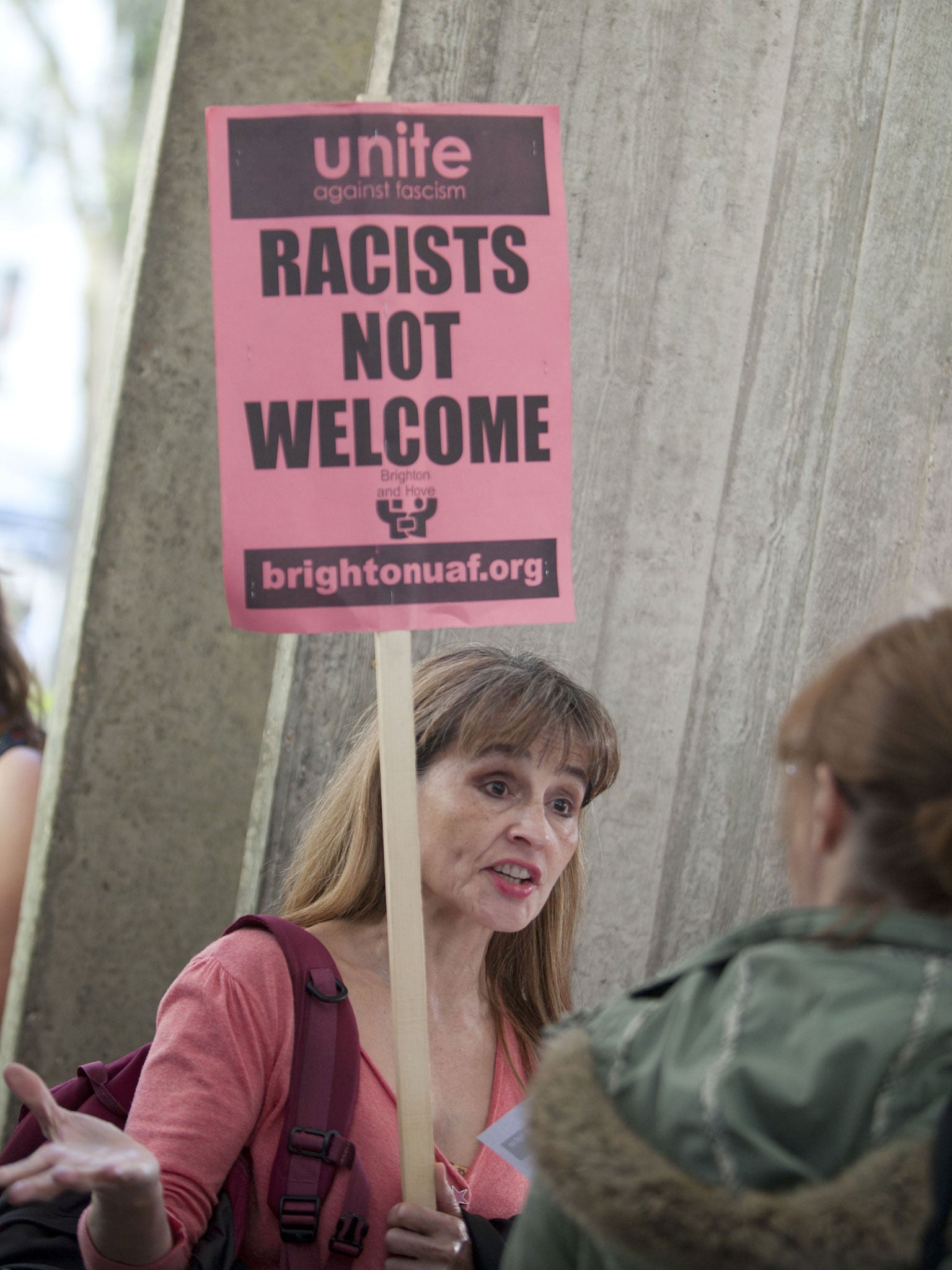Exclusive: Race hate - a crime the police will not solve
Community leaders say they no longer trust police to investigate offences as fewer than two out of 10 allegations of race hate are followed up by officers

Tens of thousands of race hate crimes are going unreported every year, disturbing new figures reveal, as community leaders warn they do not have faith in the police to investigate such offences.
A government study shows that the proportion of hate crimes being recorded by police in England and Wales has fallen by almost 20 per cent in the past three years.
Less than a fifth of allegations of racially or religiously motivated crime are now investigated, and less than a third of these result in court proceedings, let alone convictions.
Campaigners claimed yesterday that the discrepancy showed the police were “no longer looking” for hate crime and were more interested in showing that recorded crime was falling than encouraging victims to come forward.
“There is pressure on the police not to look for these crimes,” said Fiyaz Mughal, who runs Mama, a helpline for victims of anti-Muslim violence. “Who would want to be a chief constable or police and crime commissioner reporting increased rates of racially aggravated crime? All they want to do is reduce crime levels.” The Home Office report compared data gathered from the annual Crime Survey – which estimates the total extent of crime in the UK – with actual incidents reported to police.
Based on two years of data it found that there were an estimated 278,000 hate crimes a year – of which 154,000 had an element of racial motivation. But official police figures recorded only 42,236 hate crime offences in the past year and just 30,000 racially aggravated crimes – 15 per cent of the total reported in the Crime Survey.
Although the survey does show higher rates of offending than official figures for almost all crimes, the difference is not usually so stark. On average, across all crimes, police statistics record around 40 per cent of the offences reported to the survey.
The statisticians who compiled the report said that it was possible that some crimes – which the victim believed to be racially motivated – were not being assessed as such by the police.
Race charities said the discrepancy was also due to ethnic minority groups not having confidence in the criminal justice system and not reporting race hate crimes in the first place.
“I don’t believe that hate crime is falling, despite what the recorded crime figures suggest,” said Andrew Bolland, partnership manager at the charity Stop Hate.
“What these figures show is that people are just less likely to go to police and report crime than they were. A lot of people lack the confidence that they are going to get a successful outcome from the criminal justice system and that does effect reporting.”
Jon Burnett, a researcher at the educational charity the Institute for Race Relations, said he believed the discrepancy was probably due to a combination of factors.
“Often the criminal justice system does not understand racism or know how to deal with it.
“We know from our work that many hate crimes do not get reported because of experience or perception that the police will not thoroughly investigate them.
“At the same time I think that there is a tendency on the part of the police not to label crimes as hate crimes because there is a belief that it will be more difficult to get a conviction. There is also a feeling that any conviction is a successful result.”
Assistant Chief Constable Drew Harris, the national policing lead for hate crime, admitted that under-reporting of hate crime was a real problem.
“There is a significant difference between police-recorded hate crime and the Crime Survey because hate crime is still massively underreported,” he said.
“Under-reporting is still one of biggest challenges that the police and the criminal justice system face in reducing the harm caused by these type of crimes. We are committed to increasing the reporting and recording of hate crime.”
Crime prevention minister Norman Baker said all forms of hate crime were deplorable and tried to reassure victims that they would get support if they came forward.
“We can only confront it if victims feel empowered to come forward, confident that their voices will be heard,” he said.
“The number of people receiving a custodial sentence for racially or religiously aggravated crimes is higher than ever before, and these criminals are spending more time in prison.
“However, we need to do more to encourage all victims to come forward. This is why we are working with the police and other agencies to increase reporting, improve support and prevent these terrible crimes happening in the first place.”
Case study: Revenge not race behind murder
Changez Arif, 33, was stabbed to death in Manchester in 2006 by 19-year-old Michael Skeffington.
Skeffington had already been given an anti-social behaviour order for terrorising a predominantly Asian local estate. However, in the case of Mr Arif the police ruled out racial motivation, stating that the attack was motivated instead by revenge.
On the night of the murder, Skeffington and Mr Arif were involved in a fight, from which the teenager came off worse. Enraged at having lost the fight, Skellington picked up a knife and lay in wait for Mr Arif to walk down an alleyway to meet someone. When he did, the teenager stabbed him in the back and stomach.
Skellington fled to London but was arrested five days later. He was convicted of murder in January 2007 and will serve a minimum of 15 years in jail.
Chloe Hamilton